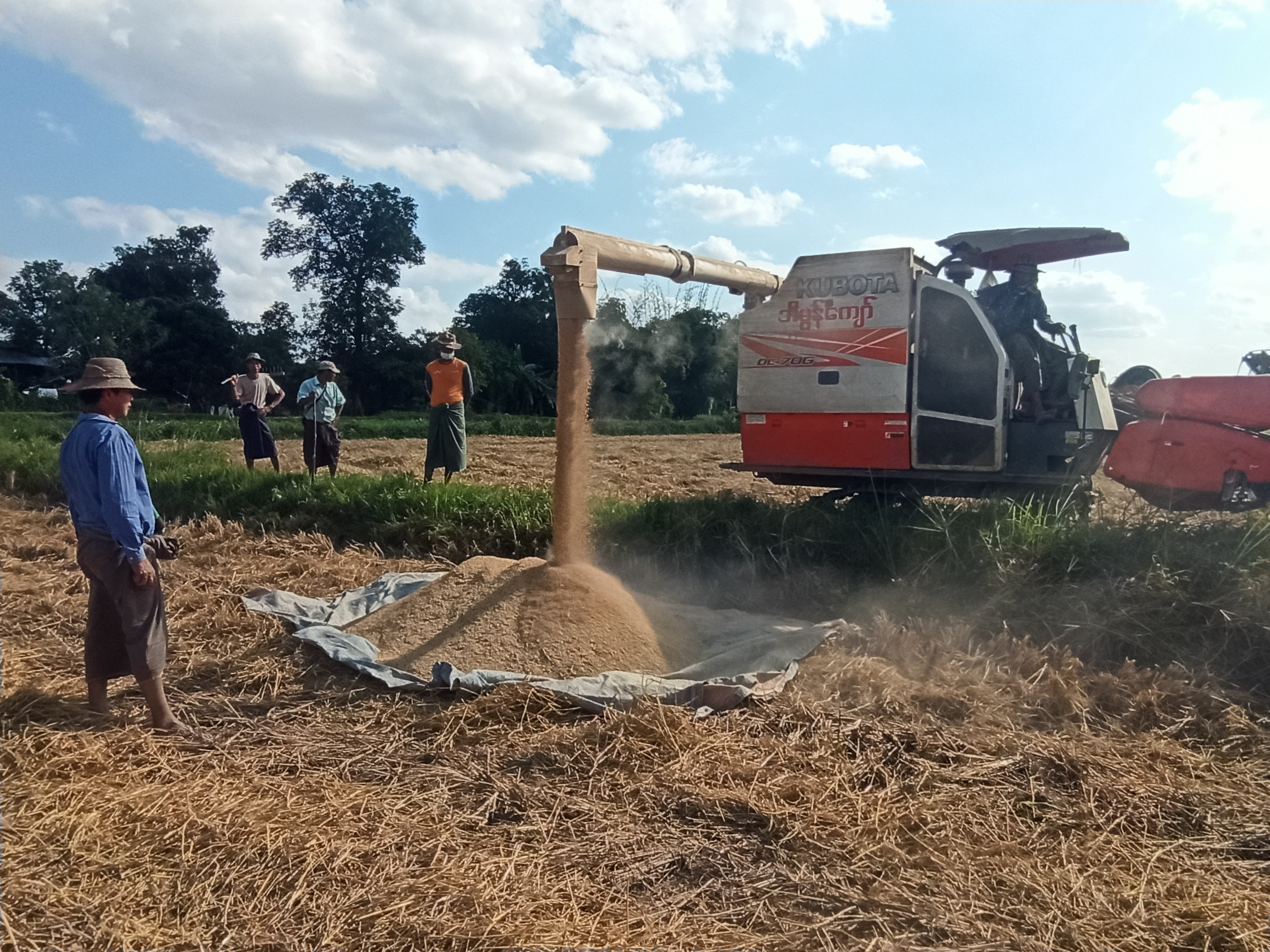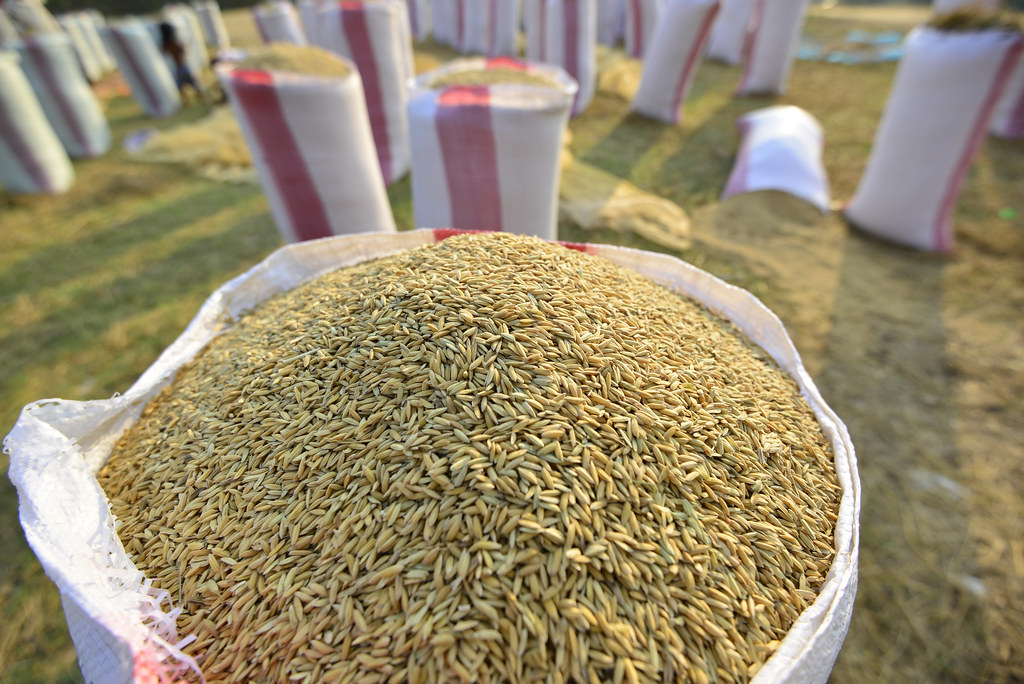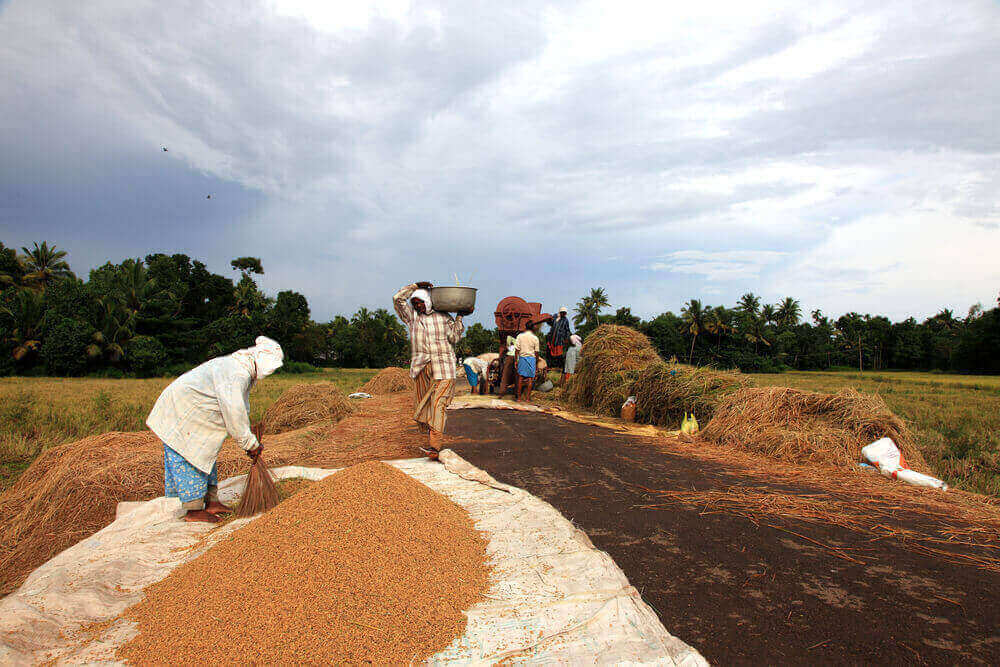CNI News
9 Nov 2022
Prices of paddy hit about MMK 1.2 million per 100 baskets during the harvest of monsoon paddy but farmers were not able to enjoy benefits, farmers and their advocacy groups told the CNI.
Although paddy prices have risen this year, farmers are likely to reduce paddy cultivation acreages in summer due to falling yields and other reasons, Chairman U Thein Aung of Peasants’ Union told the CNI.

Threshing paddy.
He said, “Paddy prices are higher this year but farmers were not able to use fertilizers and pesticides sufficiently during the cultivation and paddy yields dropped by 35 percent per acre. If they could harvest 100 baskets of paddy from an acre of farm in the past, they can harvest only 65 baskets this year. Paddy prices hit about MMK 1.2 million per 100 baskets recently but there may be paddy shortages. Although paddy prices are higher, farmers who cultivate a single crop will have to grow paddy but others will not raise paddy because they need five bags of fertilizer for an acre of farm. They are worried about the costs of inputs, which they cannot get through the BNPL system.”
Paddy yields fell this year because of the higher cost of inputs such as fertilizers, fuel and pesticides.
Moreover, farmers have to pay MMK 90,000 for labourers to reap an acre of paddy and will be able to enjoy benefits if they can harvest 50 baskets of paddy per acre, Farmer U Aye Naing told the CNI.

Rice paddy.
He said, “MMK 1.2 million per 100 baskets is a good price for farmers but they cannot enjoy much benefit because of higher input and labour costs. If they can harvest only 35 baskets from an acre of farm, they suffer losses. If they can harvest 50 baskets of paddy per acre, they will get 15 baskets of paddy worth MMK 100,000 for them, according to farmers.
Farmers said total acreage of paddy may fall in the upcoming cultivation season and paddy acreage can expand when fertilizer prices fall.
Paddy prices have risen by about MMK 300,000 compared with last year’s paddy prices but yields have dropped and prices are not likely to decrease, according to farming experts.




